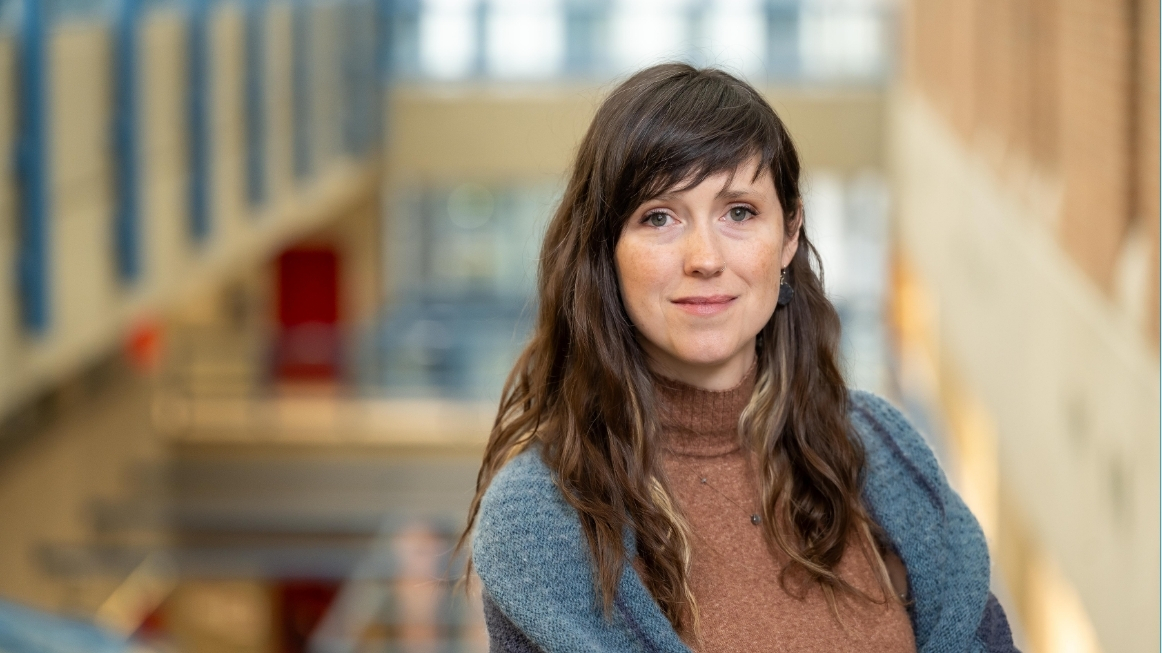

Psychologist Nancy Sin is researching how positive experiences can help to reduce the damaging long-term health impacts of stress.
Have you ever tried to overcome a bad day by calling up a loved one, going for a walk on the beach, or watching your favourite sitcom? According to health psychologist Nancy Sin, when you seek out these types of feel-good activities, you may be helping to cushion the long-term health impacts of stress.
In an effort to understand more about what kinds of positive experiences help people cope with stress, and what impact this form of stress management has on long-term health outcomes, Dr. Sin is conducting a SSHRC-funded study that will follow a group of Metro Vancouver adults over a three-year period.
Dr. Nancy Sin spoke to the Faculty of Arts about what the research involves and what impact she hopes to have.
What are you trying to uncover in this research?
The purpose of this research is to understand how people naturally cope with stress in their everyday lives. Positive psychological experiences have long been theorized to serve important functions during stress, for example, by reducing reactivity to stressors or by promoting faster recovery following stress exposure. However, there is little empirical research that examines how positive experiences naturally unfold in the context of stress and their potential roles in stress and coping processes. This study will track the frequency and timing of positive events and stressors in relation to one another. My research team will also examine whether positive events (such as positive social interactions) are related to physiological and emotional reactivity to a subsequent stressor, as well as the rate of physiological and emotional recovery after a stressor has occurred.
How will your research be conducted?
Participants will fill out surveys on a mobile device as they go about their daily routines, reporting on their emotions, stressors, and positive events. We will also collect saliva samples multiple times per day across several days to assess biological markers of stress, including cortisol. An important feature of this study is that we will collect repeated measures from the same person, which will allow us to examine a person’s psychological and physiological states during moments when they are facing stressors without any accompanying positive events vs. during moments when their stressors co-occur with positive events.
This project is being done in collaboration with Dr. Anita DeLongis (UBC Professor of Psychology), and the research activities are carried out by the hardworking and dedicated team of graduate students and undergraduate research assistants in my lab.
“I was drawn to this area of research because stress is prevalent and has substantial influences on psychological and physical well-being.”
What existing knowledge will you be building on that might surprise the average person?
The average person may be surprised to know that minor positive events—such as conversing with a friend, spending time in nature, or engaging in a hobby—occur far more frequently in daily life than do stressors. My past research shows that daily positive events are protective for health. For example, middle-aged and older adults who experience more daily positive events have lower levels of inflammation, healthier patterns of diurnal cortisol, and better sleep.
What’s even more intriguing is that positive events and stressors tend to co-occur on the same days, suggesting (among other possibilities) that people seek out or create positive events as anticipatory coping before an impending stressor, or to cope soon after a stressor has occurred. Whether this form of coping has implications for longer-term well-being is a topic that will be examined in this project.
What drew you to this area of research and why is this topic important to you?
I was drawn to this area of research because stress is prevalent and has substantial influences on psychological and physical well-being. Much of the research on stress has focused on major life events (e.g., job loss, divorce, bereavement), chronic stressors (e.g., caregiving), and global perceived stress.
Yet, minor forms of day-to-day stress occur frequently and can accumulate over time to shape downstream health. My colleagues and I have found that people who were more emotionally reactive to daily stressors tended to show greater physiological dysregulation, psychological distress, and other negative health consequences. It is therefore important to identify modifiable factors in daily life – for example, positive experiences – that can enable people to successfully adapt to stress.
What impact do you hope that your work has?
I hope the findings of this project can inform the development of stress management programs and help to reduce the burden of stress-related outcomes. This study will also advance theory about the role of positive experiences in stress and coping, in addition to spurring new avenues of work on positive contexts in daily life that underlie stress resilience. Last but not least, this project will provide valuable opportunities for training the next generation of scholars in the areas of stress and well-being.
This article is republished from The Faculty of Arts. Read the original article here.


